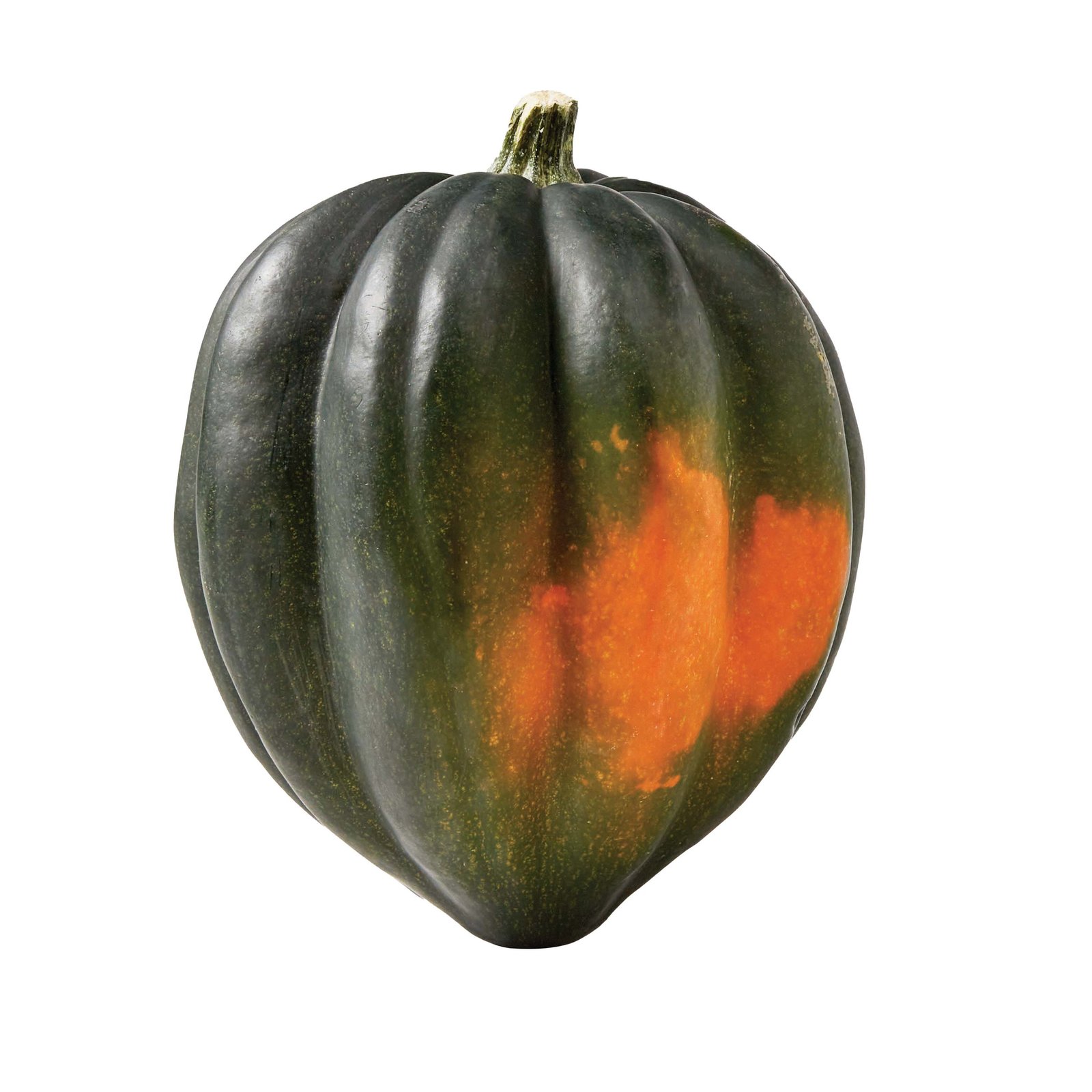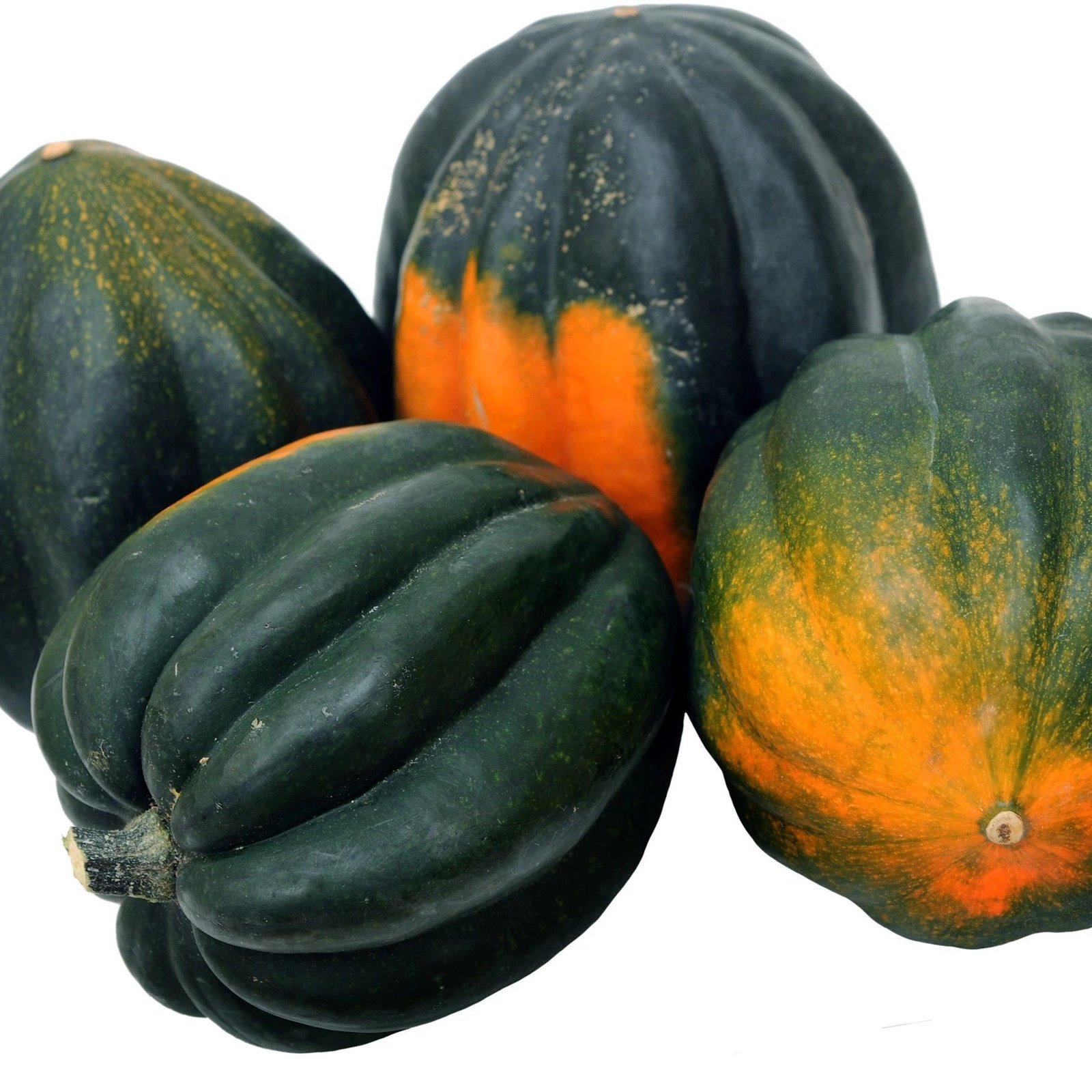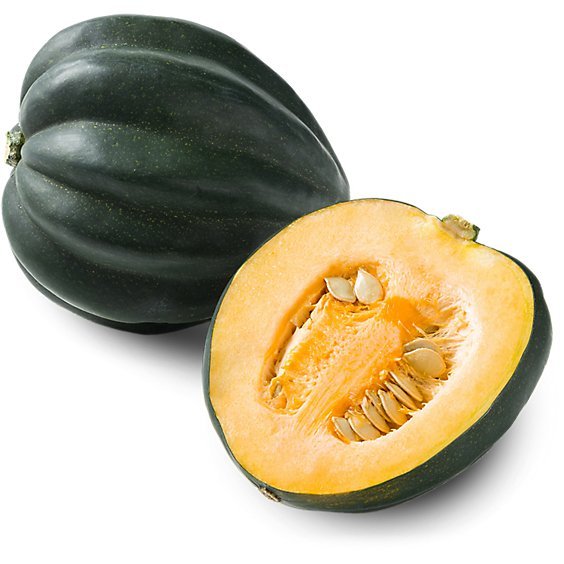What does Acorn Squash taste like? That was my first question when I heard about this winter squash variety. Once I tried it, I found the answer to be quite delightful, and I’m here to share that experience with you.
What Is Acorn Squash?
Acorn Squash, also known as pepper squash or Des Moines squash, is a type of winter squash that belongs to the same species as pumpkins and zucchinis, Cucurbita pepo. It typically has a dark green, thick exterior with deep ridges and a sweet, orange-yellow interior flesh. This squash got its name from its acorn-like shape. A staple in North American fall dishes, Acorn Squash can trace its roots back to the indigenous people of the Americas. I often find it mingling with spices like cinnamon and nutmeg or savory ingredients like garlic and rosemary in various autumnal dishes.
What Does Acorn Squash Taste Like? The Answer
Acorn Squash tastes like a combination of sweet, nutty, and earthy flavors. It has a milder sweetness compared to butternut squash, with a hint of buttery texture when baked or roasted. What makes this squash unique is how its natural sugars caramelize and intensify its flavor, making for a savory-sweet delight.
I find that many people, including me at one point, wonder what Acorn Squash tastes like because it’s less famous than butternut or spaghetti squash. Its appearance might suggest a bland taste, but once cooked, the transformation is absolutely surprising and pleasant.

Variations in Taste of Acorn Squash
The taste of Acorn Squash can vary somewhat based on where it’s grown. Different soil types, weather conditions, and methods of cultivation can bring out a range of subtle flavors, making each squash a little unique. Here’s a good read on the subject: The Science Behind the Taste.
Seasonally, Acorn Squash harvested in late summer through fall tends to be sweeter and more flavorful due to the cooler temperatures allowing for slower sugar development. This naturally influences my recipes and the resulting flavors of the dishes I create.
Specific varieties of Acorn Squash also bring their own taste profiles. Some have a more pronounced sweetness, while others lean towards a firmer texture and nuanced taste. Let’s consider a few:
- Table Queen – A standard type, sweet and nutty.
- Jumbo Acorn – As the name suggests, larger and slightly less sweet but good for stuffing due to its size.
- White Acorn – Milder in flavor with a slightly less sweet profile.
- Golden Acorn – Similar to the Table Queen but with a yellow skin with a slightly different taste nuance.
Nutritional Benefits of Acorn Squash & Impact on Taste
Acorn Squash is not just a feast for the taste buds; it is also packed with nutritional benefits, such as being rich in fiber, vitamin C, potassium, and magnesium. On top of these, it is relatively low in calories, making it a healthful inclusion in my diet. See more about its nutritional value here.
The health aspects of Acorn Squash might influence perceptions of its taste. Knowing that I’m eating something that’s good for me certainly enhances my enjoyment of its flavor. This psychological effect can sometimes make the squash taste even better!

Acorn Squash in Culinary Uses
In my kitchen adventures, I’ve found that Acorn Squash is incredibly versatile. It can be roasted, baked, steamed, sautéed, or even microwaved. Its natural sweetness makes it a fantastic candidate for both sweet and savory dishes alike.
The flavors of Acorn Squash complement other ingredients seamlessly. In Italy, for instance, it’s often used in risottos, offering a creamy texture and a sweet counter to the savory Parmesan cheese. It pairs particularly well with spices, nuts, and herbs, enhancing its intrinsic flavors.
Acquiring and Preparing Acorn Squash
Acorn Squash can usually be found in my local grocery stores or farmers’ markets during the fall season. When I’m picking one out, I make sure it feels heavy for its size and has a dull, matte skin—indicating quality and ripeness.
Pairing Acorn Squash with Other Flavors
There are numerous ways to pair Acorn Squash with other flavors, and over the years, I’ve enjoyed experimenting. Here are a few pairings that I find complement Acorn Squash beautifully:
- Spices: cinnamon, nutmeg, allspice, and clove.
- Herbs: sage, thyme, and rosemary.
- Savory: garlic, onions, walnuts, and brown sugar.
- Dairy: butter, cream, and cheeses like feta and parmesan.

Recipe: Simple Roasted Acorn Squash
If you’re looking to try Acorn Squash, one of the easiest recipes I love is Simple Roasted Acorn Squash:
- 1 Acorn Squash, sliced into wedges
- 2 tablespoons olive oil
- Salt and black pepper to taste
- A pinch of nutmeg
Simply toss the wedges in olive oil, season, and roast in a 400°F oven for 25-30 minutes or until tender and caramelized. It’s a delightful side dish that showcases the squash’s natural flavors.
Final Words
In conclusion, answering the question, “What does Acorn Squash taste like?” I’d say it’s a beautiful blend of sweet, nutty, with just a touch of earthiness – a perfect fall flavor. Its versatility and health benefits only add to its appeal. Whether you’re new to Acorn Squash or a seasoned fan, it’s a squash that’s well worth exploring in your culinary endeavors.

